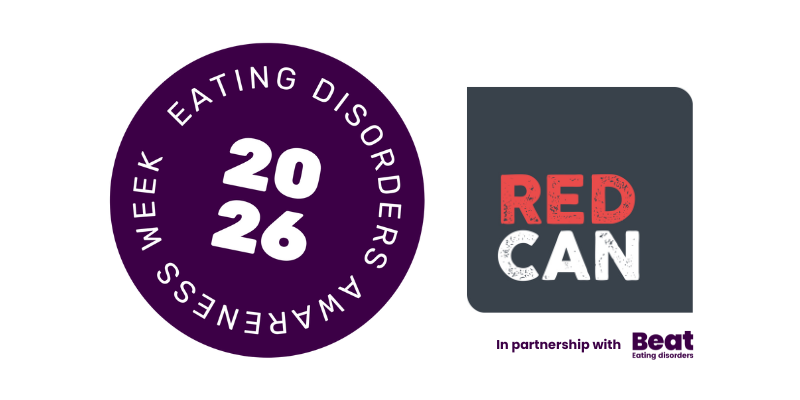RED CAN
Work for you to improve access to trusted services
Our Values
. . . and is an acronym for Regional Eating Disorders Charities Alliance and Network. A total of eight regional eating disorder charities, coming together to form the UK's VCSE provider collaborative, delivering expert-by-experience care closer to you.
Our ValuesGet involved with Redcan by volunteering your time, raising awareness for eating disorders and those affected.
Work for you to improve access to trusted services
Our ValuesFind local charities with decades experience.
Search NowOffer face to face support in your area. Get Support
Get SupportThis Eating Disorders Awareness Week you can help us raise awareness of eating disorders and the importance of community. Eating disorders can be isolating, making people feel alone whether someone has an eating disorder themselves or whether they are supporting someone.
We’re celebrating the power of community and the vital role family, friends, and other support networks play in helping someone feel supported, understood, and never alone on their journey from seeking help, undergoing treatment and beyond.
We'll be talking about different types of community, the role of online communities and highlighting the importance of good wellbeing for everyone.
Download the resource pack

Having a conversation with someone about an eating disorder can be hard, whether you're worried about yourself or about someone else.
At RedcanUK, we understand the seriousness of eating disorders and the importance of addressing them with care and compassion.
Eating disorders are serious mental illnesses, affecting people of all ages, genders and backgrounds. Individuals who struggle with an eating disorder have an unhealthy relationship with food, using disordered behaviours (restriction, purging, binging and other compensatory behaviours such as exercise) as a way of coping with difficult emotions or behaviours.
According to Priory Group, between 1.25 and 3.4 million people in the UK are affected by an eating disorder impacting individuals of all ages and genders. Eating disorders are most common in ages 16 to 40, with Binge Eating Disorder and OSFED being the most common diagnosis.
Eating disorders are complex and there can be a number of contributing factors to an individual developing an eating disorder including genetic factors and our biology, as well as environmental factors and our surroundings. Because of this, there can't be a one-size-fits-all approach to treatment which is why REDCAN members offer a range of effective treatments and support options to individuals referred into their services.
An individual's experience of an eating disorder will differ from one person to the next, which also means the way they respond to treatment will also differ. It is important that organisations take a person-centred approach to treatment, recognising any other components contributing to the eating disorder. This can include other presenting health issues or cultural and environmental factors.